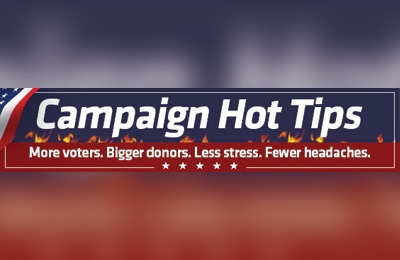Tonight, the non-profit organization I run will hold its annual awards dinner featuring a pair of dueling piano players as entertainment. And this one has been the most stress-free event I’ve put together yet.
Part of the reason is we sold out weeks ago.
The most stressful part of putting on an event – beyond the fear of losing money instead of raising it – is going into event day knowing you’re going to have more empty chairs than “cheeks in seats.”
Embarrassing.
I’ll have a detailed, step-by-step case study on this event in the May issue of Psephology Today, which will go out this weekend to subscribers.
But here are some quick “hot tips,” courtesy of Eventbrite, to follow when putting together your own events…
- Grabbing Attention: Your event description must captivate readers quickly, as modern consumers form an opinion within seconds.
- Capturing Interest: A compelling event description should capture the unique voice of the event and provide essential details to engage potential attendees.
- Voice vs. Tone: Voice defines how you communicate, while tone adapts the voice to suit the context, such as excitement in a launch announcement versus urgency in a last-chance email.
- Essential Details: Include event basics such as who, what, when, where, and how. A strong description provides enough information to make attendees comfortable purchasing tickets.
- Benefits Over Features: Highlight the benefits of attending early in the description, then provide specifics about the event's experience, speakers, location, and ticket costs.
- Event Names & Taglines: Choose an engaging name and tagline to convey the event's value memorably. Taglines should be concise, avoiding over-cleverness while integrating brand personality.
- Event Descriptions: Keep them concise, clear, and easy to skim by breaking up the text with sections, headers, and bullet points.
- Promotion Channels: Tailor descriptions for different platforms such as event listings, websites, emails, social media, and ads. Include unique copy for each channel to suit its format and audience behavior.
- Social Proof: Include testimonials or endorsements from influencers, experts, or past attendees to build credibility.
- Avoiding Jargon: Steer clear of clichés and overused buzzwords. Rewrite sentences for clarity, ensuring they reflect the event's unique value proposition.
- Connecting Emotionally: Create descriptions that evoke an emotional connection, appealing to attendees' interests and sparking a sense of FOMO (Fear of Missing Out).
Read the full “How to Write the Perfect Event Description” blog post by clicking here.
FAMOUS LAST WORDS
“Take classes, read and attend seminars. I search newspapers and the Internet for new, interesting classes, many of which are free or inexpensive. I also attend and pay for expensive seminars on what I want to learn. I am wealthy and free from needing a job simply because of the courses I took.” – Robert Kiyosaki, author of “Rich Dad, Poor Dad”

